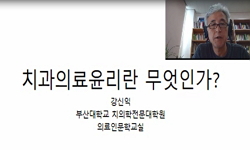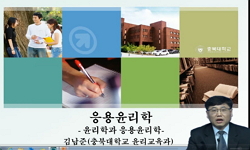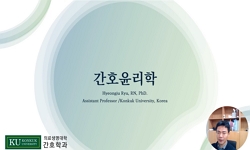본 연구는《민법전》제1219조 및 제1220조에 규정된 환자의 의료 치료에 대한 자기결정권 법적 보호와 제한을 심층적으로 분석한다. 이는 환자 자기결정권 행사의 기초를 이루는 내용이다. 그...
http://chineseinput.net/에서 pinyin(병음)방식으로 중국어를 변환할 수 있습니다.
변환된 중국어를 복사하여 사용하시면 됩니다.
- 中文 을 입력하시려면 zhongwen을 입력하시고 space를누르시면됩니다.
- 北京 을 입력하시려면 beijing을 입력하시고 space를 누르시면 됩니다.

중국 환자 자기결정권의 법적 보장과 제한에 관한 연구 = A Study on the Legal Protections and Limitations of Patient Self-Determination Rights in China
한글로보기https://www.riss.kr/link?id=A109685227
- 저자
- 발행기관
- 학술지명
- 권호사항
-
발행연도
2025
-
작성언어
Korean
- 주제어
-
등재정보
KCI등재
-
자료형태
학술저널
-
수록면
101-133(33쪽)
- 제공처
-
0
상세조회 -
0
다운로드
부가정보
국문 초록 (Abstract)
연구에 따르면, 고지에 입각한 동의에 관한 법적 기준이 충분히 이행되지 않고 있으며, 이는 의료 전문가 중심의 문화적 태도와 환자의 수동적 성향으로 인해 더욱 악화되고 있다. 또한, 의료 제공자들이 명확한 절차적 지침을 확보하지 못해 환자 자율성 존중의 실천이 불일치하는 문제가 부각되었다. 이러한 결함을 해결하기 위해 본 연구는 기존 법체계를 강화하고 환자 자기결정권을 보다 효과적으로 보호하기 위한 법률 개혁 방안을 제시한다. 구체적으로 체계적인 법률 프레임워크 구축, 연명의료결정제도 도입, 환자 알권리·동의 메커니즘 개선, 환자의 의료 결정 능력에 대한 법정 판단 기준 명확화 등을 포함한다. 본 연구는 환자 중심 의료 패러다임으로의 전환을 촉구하며, 이러한 개혁이 개인의 권리 보호에 필수적일 뿐만 아니라 전반적인 의료 질 제고에도 기여할 것임을 강조한다. 법률과 실무 간 격차를 해소함으로써, 이 연구는 환자 자기결정권 법적 보호의 현재적 한계를 부각시키는 동시에 포괄적인 법률 개정 및 교육적 노력을 통한 명확한 개선 방향을 제시한다. 이론적 논의와 실천적 적용을 아우르는 이중적 접근은 향후 의료법 및 환자 권리 분야의 연구와 정책 수립에 유용한 프레임워크를 제공할 것이다.
본 연구는《민법전》제1219조 및 제1220조에 규정된 환자의 의료 치료에 대한 자기결정권 법적 보호와 제한을 심층적으로 분석한다. 이는 환자 자기결정권 행사의 기초를 이루는 내용이다. 그러나 이러한 법적 근거에도 불구하고, 2023년 6월 28일 ‘제왕절개 거부로 인한 영아 사망 사건’과 같은 주요 사례에서 드러났듯, 법적 요구와 환자의 자기결정권 행사 간 현저한 괴리가 존재하며 실제 집행 과정에서 중대한 도전에 직면해 있다. 본 연구는 정성적 분석 방법을 활용하여 법률 문서, 법원 판례, 학술 논문 등을 광범위하게 검토함으로써 환자 자기결정권의 역사적 변천과 중국의 현실적 상황을 포괄적으로 서술한다. 연구 결과, 의료 현장에서 법이 부여한 환자의 자기결정권이 광범위하게 간과되고 있으며, 이로 인해 다수의 문제가 발생함을 확인하였다.
연구에 따르면, 고지에 입각한 동의에 관한 법적 기준이 충분히 이행되지 않고 있으며, 이는 의료 전문가 중심의 문화적 태도와 환자의 수동적 성향으로 인해 더욱 악화되고 있다. 또한, 의료 제공자들이 명확한 절차적 지침을 확보하지 못해 환자 자율성 존중의 실천이 불일치하는 문제가 부각되었다. 이러한 결함을 해결하기 위해 본 연구는 기존 법체계를 강화하고 환자 자기결정권을 보다 효과적으로 보호하기 위한 법률 개혁 방안을 제시한다. 구체적으로 체계적인 법률 프레임워크 구축, 연명의료결정제도 도입, 환자 알권리·동의 메커니즘 개선, 환자의 의료 결정 능력에 대한 법정 판단 기준 명확화 등을 포함한다. 본 연구는 환자 중심 의료 패러다임으로의 전환을 촉구하며, 이러한 개혁이 개인의 권리 보호에 필수적일 뿐만 아니라 전반적인 의료 질 제고에도 기여할 것임을 강조한다. 법률과 실무 간 격차를 해소함으로써, 이 연구는 환자 자기결정권 법적 보호의 현재적 한계를 부각시키는 동시에 포괄적인 법률 개정 및 교육적 노력을 통한 명확한 개선 방향을 제시한다. 이론적 논의와 실천적 적용을 아우르는 이중적 접근은 향후 의료법 및 환자 권리 분야의 연구와 정책 수립에 유용한 프레임워크를 제공할 것이다.
다국어 초록 (Multilingual Abstract)
The study finds that legal standards for informed consent and disclosure are insufficiently enforced, a situation exacerbated by the cultural attitudes towards medical authority and patient passivity. Additionally, it reveals a lack of clear procedural guidance for medical providers, resulting in inconsistent practices in respecting patient autonomy. To address these shortcomings, the study proposes several legal reforms aimed at strengthening the existing framework to better protect patient self-determination rights. These measures include the establishment of a comprehensive legal framework, setting up systems for advance directives, optimizing mechanisms for informed consent, and clarifying legal standards for assessing patient decision-making capacity. The paper advocates for a shift towards a more patient-centered approach in healthcare, suggesting that such reforms are crucial not only for individual rights but also for improving the overall quality of medical care. By bridging the gap between law and practice, this research not only highlights the current inadequacies in the legal protection of patient autonomy rights but also provides a clear path forward through comprehensive legal reforms and educational initiatives. This dual focus on theoretical exploration and practical application offers a valuable framework for future research and policy-making in the fields of medical law and patient rights.
This study delves deeply into Articles 1219 and 1220 of the "Civil Code of the People's Republic of China," which pertain to the legal protections and limitations of patients' rights to self-determine their medical treatments. These articles form the ...
This study delves deeply into Articles 1219 and 1220 of the "Civil Code of the People's Republic of China," which pertain to the legal protections and limitations of patients' rights to self-determine their medical treatments. These articles form the foundation for the exercise of patient autonomy rights. Despite these legal foundations, practical implementation faces significant challenges, as highlighted by critical cases such as the "Cesarean Refusal Infant Death Case" on June 28, 2023, which expose significant discrepancies between legal requirements and patients' attempts to exercise their rights to self-determination. This paper employs a qualitative analysis approach, extensively reviewing legal documents, court cases, and academic articles to provide a comprehensive description of the historical evolution and current state of patient autonomy rights in China. The research identifies a prevalent disregard in the medical setting for the legal rights to autonomy granted to patients, leading to numerous issues.
The study finds that legal standards for informed consent and disclosure are insufficiently enforced, a situation exacerbated by the cultural attitudes towards medical authority and patient passivity. Additionally, it reveals a lack of clear procedural guidance for medical providers, resulting in inconsistent practices in respecting patient autonomy. To address these shortcomings, the study proposes several legal reforms aimed at strengthening the existing framework to better protect patient self-determination rights. These measures include the establishment of a comprehensive legal framework, setting up systems for advance directives, optimizing mechanisms for informed consent, and clarifying legal standards for assessing patient decision-making capacity. The paper advocates for a shift towards a more patient-centered approach in healthcare, suggesting that such reforms are crucial not only for individual rights but also for improving the overall quality of medical care. By bridging the gap between law and practice, this research not only highlights the current inadequacies in the legal protection of patient autonomy rights but also provides a clear path forward through comprehensive legal reforms and educational initiatives. This dual focus on theoretical exploration and practical application offers a valuable framework for future research and policy-making in the fields of medical law and patient rights.
동일학술지(권/호) 다른 논문
-
An Analysis of the Legitimacy of Unilateral Economic Sanctions in International Law
- 동아대학교 법학연구소
- Ningning Rao
- 2025
- KCI등재
-
- 동아대학교 법학연구소
- 김용의
- 2025
- KCI등재
-
Problems and Solutions of the Operating Mechanism of China International Commercial Court
- 동아대학교 법학연구소
- zuiwha, Xu
- 2025
- KCI등재
-
- 동아대학교 법학연구소
- 쉬쨔샹
- 2025
- KCI등재




 DBpia
DBpia





